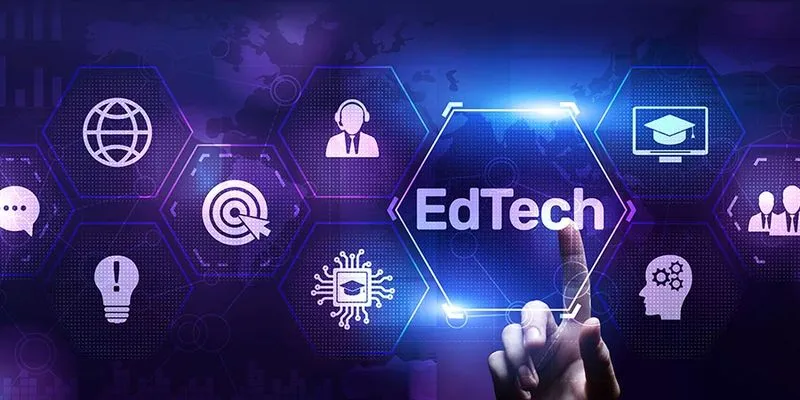How edtech tools enhance teachers' professional development
Edtech tools have the potential to revolutionise teachers' professional development, helping them improve their skills, enhance teaching practices, and provide better learning experiences.
As technology continues to advance at a breakneck pace, the education sector is undergoing a significant transformation. Educational technologies or edtech tools are not just redefining student learning but are also enhancing the teacher’s professional development. By implementing these tools educators can significantly improve their pedagogy and competence, ultimately boosting the performance of the students.
Teacher Professional Development (TPD) is the key to helping educators grow and adapt to new teaching methods and technologies. Effective TPD provides teachers with updated pedagogical strategies, deeper subject knowledge, and improved classroom management skills, enabling them to better meet the diverse needs of their students.
TPD edtech tools provide an array of resources and platforms to facilitate effective and efficient professional development of teachers. These tools can be broadly categorised into the following areas:
- Online Learning Platforms: Edtech platforms offer courses and modules specifically designed for teachers, providing flexible learning opportunities, enabling educators to learn at their own pace and according to their own schedules.
- Collaborative Tools: Tools like Google Classroom, Microsoft Teams, and Slack provide teachers with the means to collaborate and exchange best practices with their peers. These platforms make it easy for educators to communicate, share resources, and solve problems jointly, fostering a supportive community. The Learning Policy Institute, a non-profit organisation that conducts research to improve education policy and practice, highlighted in a study that collaborative professional development can boost student performance by 21%.
- Interactive Simulations and Virtual Reality (VR): Interactive simulations and VR tools provide immersive learning experiences that enable teachers to practice and enhance their teaching skills in a virtual setting. Platforms like Nearpod and TeachLivE create realistic classroom experiences where educators can try out different strategies and get instant feedback. According to a Stanford University study, VR-based professional development significantly boosts teacher confidence and effectiveness in the classroom.
- Data Analytics and AI: Data analytics and artificial intelligence (AI) are pivotal in creating personalised professional development for teachers. By using AI to analyse performance data, these platforms offer customised recommendations that address each teacher's specific needs. This data-driven approach ensures that educators receive the targeted support and resources they need to improve.

The future of TPD with edtech
The future of teacher professional development lies in the seamless integration of edtech tools with the traditional modes of teaching. As technology evolves, new opportunities for enhancing TPD will emerge. Here are a few trends to watch:
- Microlearning: Microlearning involves delivering content in small, bite-sized modules, making it easier for teachers to absorb and retain the information. Edtech platforms are increasingly incorporating microlearning techniques to make professional development more manageable and engaging.
- Gamification: Gamification introduces game-like elements into professional development, such as points, badges, and leaderboards. This approach can increase the teacher’s engagement and motivation, making learning more enjoyable, fun and rewarding.
- Augmented Reality (AR): AR tools provide interactive and immersive learning experiences, allowing teachers to visualise complex concepts and scenarios. AR can be used to simulate real life teaching challenges and provide hands-on practice in a risk-free environment.
- AI-Driven Insights: Advanced AI algorithms will continue to play a crucial role in providing personalised professional development. AI can analyse vast amounts of data to identify patterns and trends, offering teachers insights and recommendations tailored to their unique needs.
Edtech tools have the potential to revolutionise teacher professional development, making it more accessible, engaging, and effective. It can continuously improve their skills, enhance their teaching practices, and ultimately provide better learning experiences for their students.
However, its success will depend on the equitable access to necessary technology and internet connectivity, ongoing support and training, providing customisable and flexible learning options, and conducting regular evaluations to refine and enhance TPD tools and strategies.
Sharing best practices, conducting joint research, and fostering partnerships can drive innovation and align professional development initiatives with the evolving needs of teachers and students. By fostering a culture of continuous learning, educators can remain open to new ideas, embrace challenges, and persist in their efforts to improve their teaching practices, ultimately leading to improved student outcomes.
(Monica Malhotra Kandhari is the Managing Director of Aasoka.)
Edited by Jyoti Narayan
(Disclaimer: The views and opinions expressed in this article are those of the author and do not necessarily reflect the views of YourStory.)







